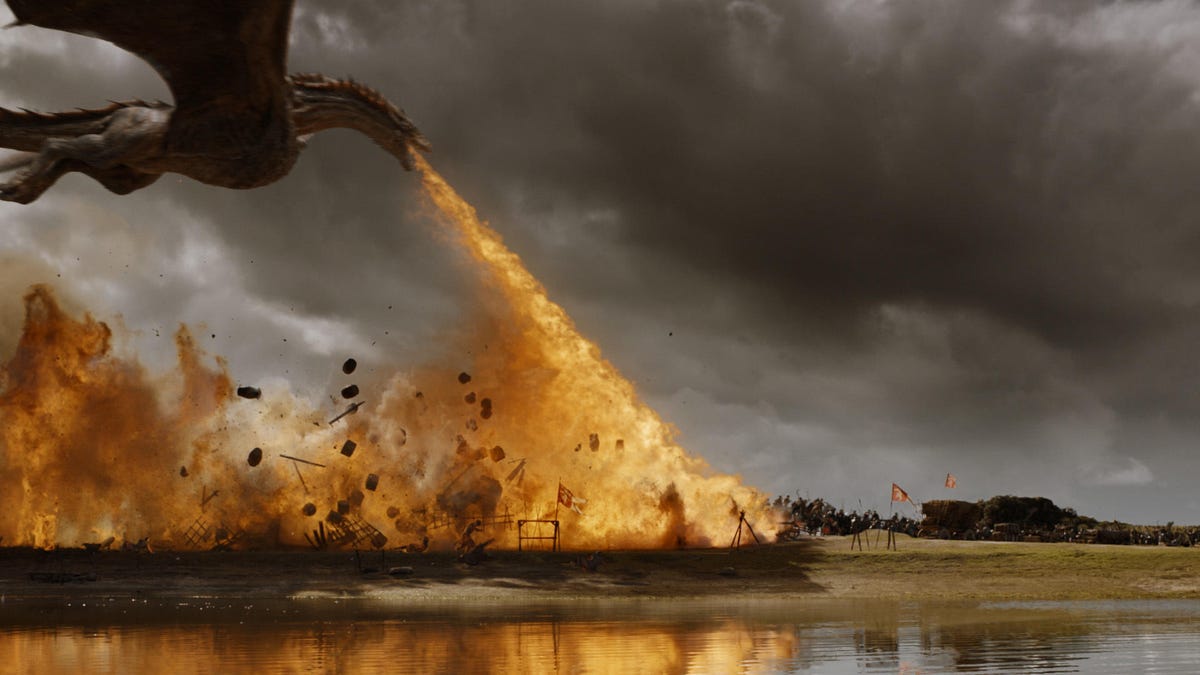How to survive deadly 'Game of Thrones'? Science finds best strategy
An analysis of the HBO show's many deaths might reveal the secret to making it to the end of the final season.

One of the preferable ways to die in Game of Thrones.
The cruel universe of HBO's Game of Thrones seems to respect a high-class woman who's willing to do whatever it takes to look out for herself.
In anticipation of the show's final season, set to debut in April, researchers from Australia's Macquarie University reviewed the frequent and often gory deaths from the first seven seasons. The goal was to take a scientific approach to determining exactly how long characters survived on screen and what attributes gave them a better chance of lasting longer.
Beyond the obvious advice of avoiding weddings, the data shows characters have a better chance of surviving if they are female, "highborn" and switch allegiances at some point.
Still, the odds of survival aren't great, with 56 percent of characters getting the ax (or the Mountain's special skull-crushing treatment, or devoured by dogs, or...) by the end of the seventh season. Those who didn't make it lasted anywhere from just 11 seconds on the show to 57 hours. You've probably already forgotten poor Waymar Royce, who was the very first to die, just five minutes into the show's first episode at the hands of a White Walker.
The odds we'll see a character die within their first hour of being introduced is a disconcerting 14 percent.
The research wasn't done just to provide scintillating conversation at cosplay cocktail parties. The findings were actually published Monday in the academic journal Injury Epidemiology.
Study co-author Reidar Lystad, an injury epidemiologist, says the analysis may not only help provide insight into who has the best chance of surviving until the end of the show, but it can show how far we've come as a society from similar dark moments in human history.
"We would argue that the ubiquity of violent deaths in the world of Game of Thrones may be attributable to, for instance, the absence of stable democratic government structures, resilient public institutions that can deliver public goods (e.g. schools and hospitals), and implementation of evidence-based violence prevention policies," Lystad writes in a blog post. "As such, we think that Game of Thrones can help us reflect on our current situation."
When I reflect on my current situation after watching the show, I'm usually most struck by how much it would be improved by having my own Dire Wolf. But that's just me.
CNET's Holiday Gift Guide: The place to find the best tech gifts for 2018.
Crowd Control: A crowdsourced science fiction novel written by CNET readers.

